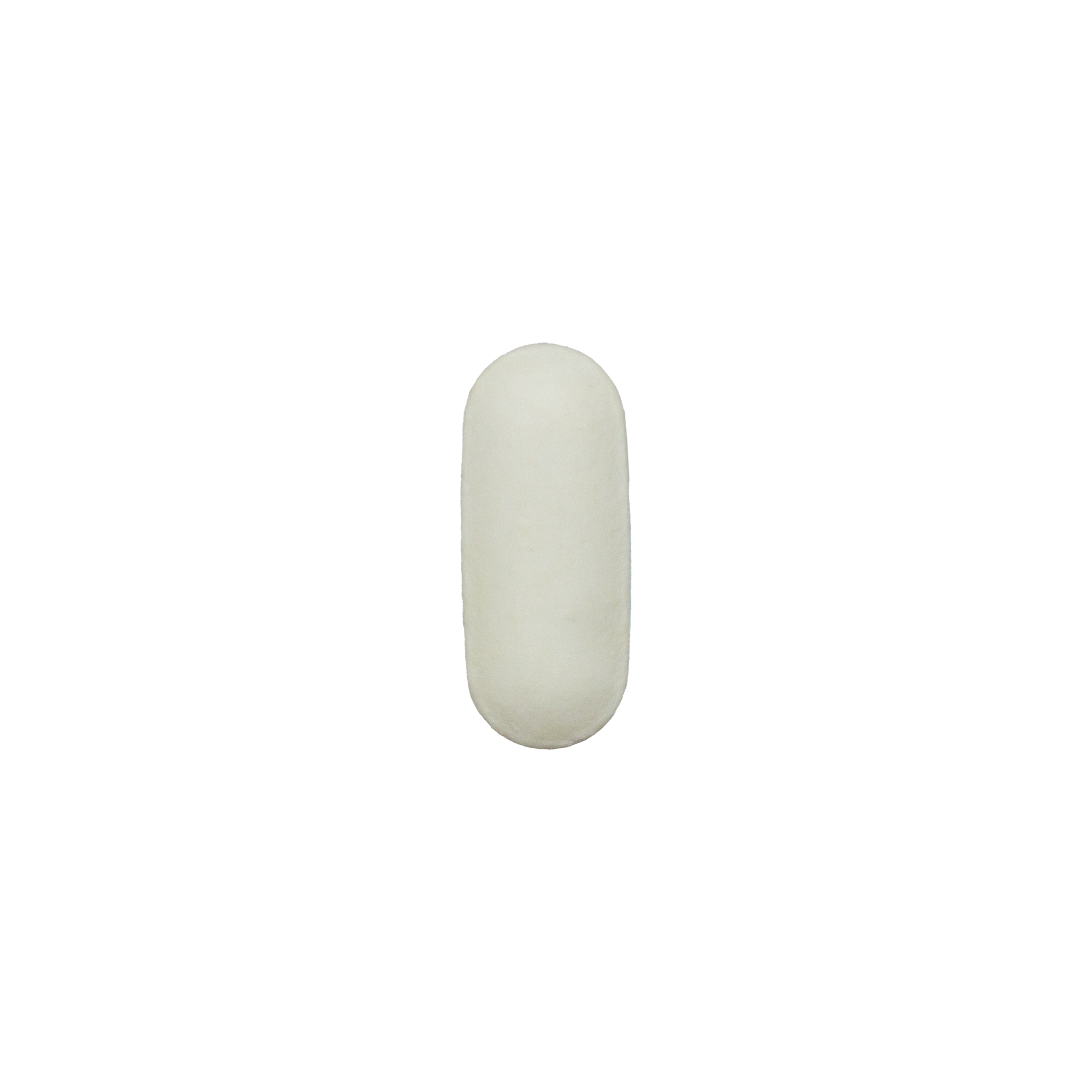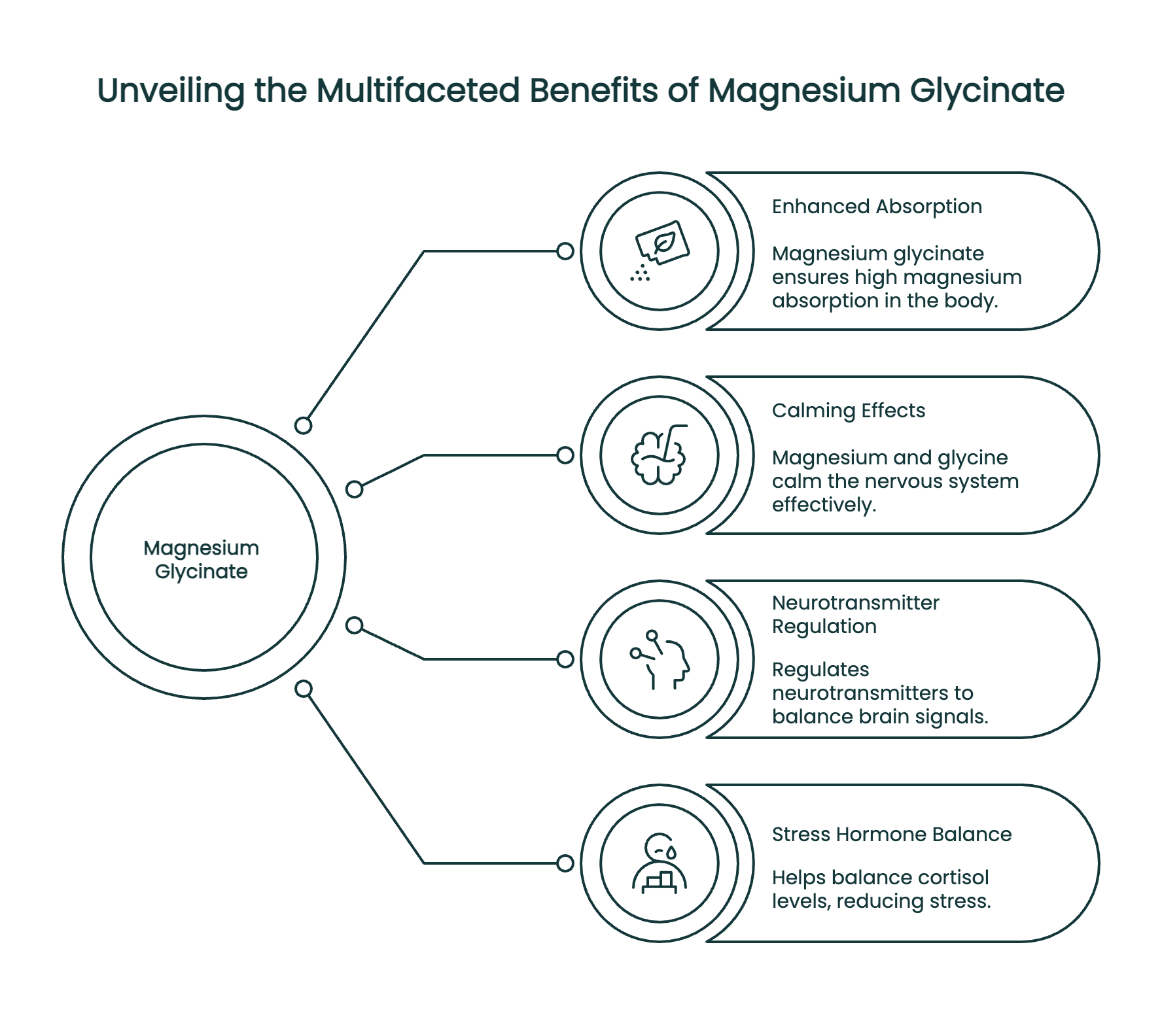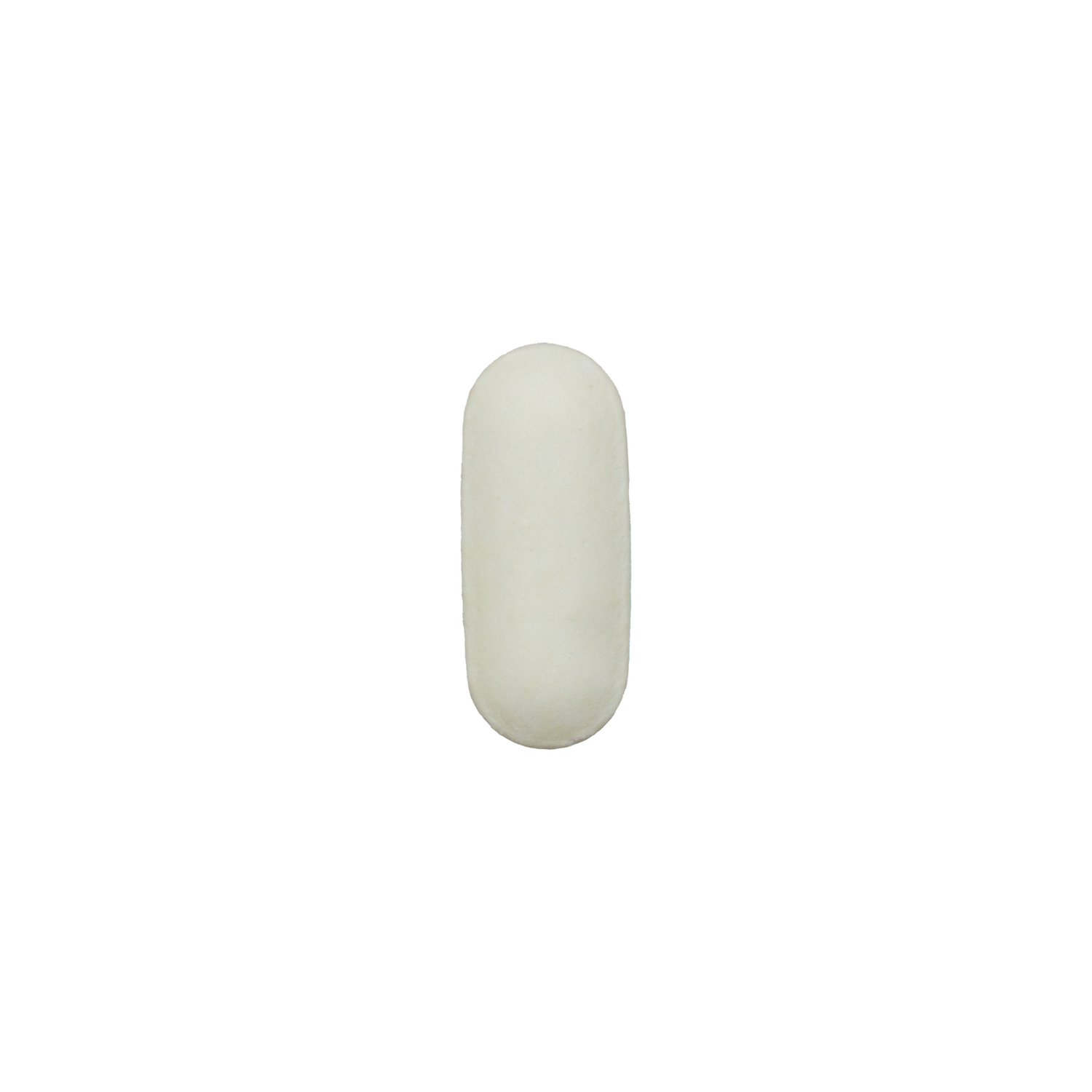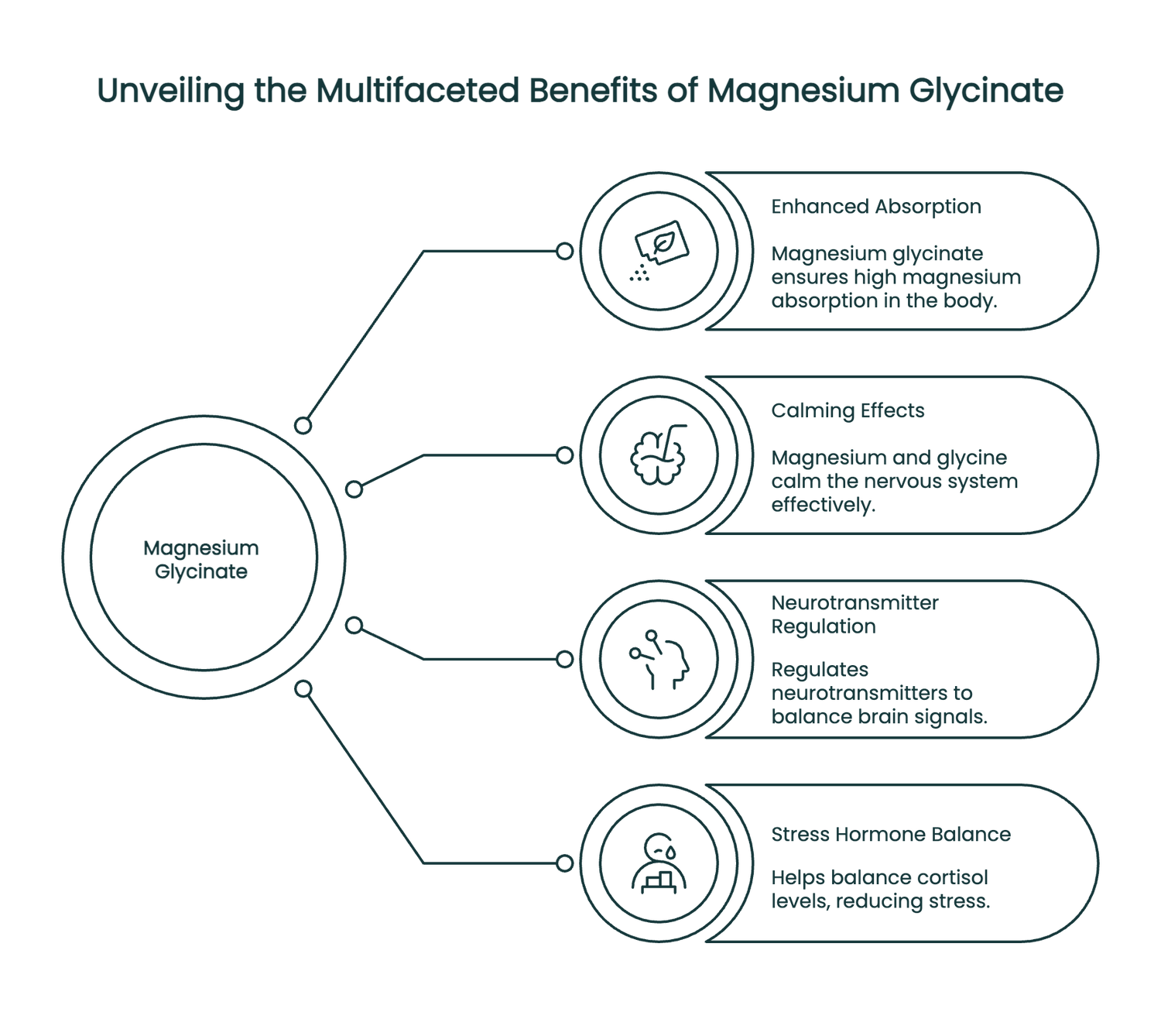

FAQs
What is magnesium, and why is it essential for human health?
Magnesium (Mg2+) is the second most abundant intracellular cation in the human body, playing a foundational role as a critical cofactor in over 600 enzymatic reactions. It is vital for numerous life-sustaining processes, including energy creation (ATP synthesis), protein synthesis, DNA and RNA maintenance, neuromuscular function, cardiovascular regulation, skeletal health, and immune system support. Approximately 25 grams of magnesium are present in an adult body, with 50-60% stored in the skeletal system.
What is magnesium glycinate and how is it different from other forms?
Magnesium glycinate is magnesium bound to glycine, making it highly absorbable and gentle on digestion. Unlike oxide or citrate forms, it rarely causes diarrhea or other gastrointestinal side effects.
Why is Magnesium Glycinate considered a superior form of magnesium supplementation?
Magnesium glycinate is superior because it is chelated with glycine, forming a stable, neutral structure that resists inhibitors in the gut and is absorbed efficiently through amino acid transporters. This provides high bioavailability and excellent gastrointestinal tolerance, reducing the risk of diarrhea or cramping. Glycine itself is a calming neurotransmitter, enhancing magnesium’s neurological and psychological benefits. Pure magnesium glycinate should be distinguished from buffered forms mixed with less bioavailable magnesium oxide.
How does magnesium, particularly magnesium glycinate, impact sleep, anxiety, and stress?
Magnesium modulates neurotransmitters by blocking excitatory NMDA receptors and enhancing inhibitory GABA receptors, supporting relaxation and sleep. It also regulates melatonin production and the stress-response system, lowering cortisol levels. Magnesium glycinate adds the calming benefits of glycine, improving sleep initiation and efficiency. While evidence for sleep benefits is strong, clinical trial evidence for anxiety is still limited despite promising preliminary findings.
What is the role of magnesium in migraine management?
Magnesium is effective in migraine management and included in treatment guidelines. Deficiency increases migraine risk by affecting neurological and vascular pathways. It prevents Cortical Spreading Depression (CSD), reduces hyperexcitability, decreases pain signaling, and regulates vasoactive peptides like CGRP. Oral magnesium supplementation (400–600 mg/day) reduces migraine frequency and intensity, while intravenous magnesium sulfate provides rapid relief for acute attacks. Magnesium glycinate is an excellent choice for long-term prevention due to high absorption and tolerance.
What are the important safety considerations and drug interactions when taking magnesium supplements?
Magnesium is generally safe but can cause gastrointestinal side effects, with glycinate being best tolerated. Contraindications include kidney disease, where excess magnesium may accumulate to toxic levels. Drug interactions include: (1) antibiotics like tetracyclines and fluoroquinolones—magnesium reduces absorption; (2) bisphosphonates—absorption reduced; (3) diuretics—increase magnesium loss; (4) PPIs—long-term use reduces magnesium absorption; (5) gabapentin—absorption reduced by 20–40%. Doses should be spaced appropriately. The tolerable upper limit is 350 mg/day, but clinical therapeutic doses are often higher under supervision.
How does magnesium glycinate help with sleep and stress?
Both magnesium and glycine calm the nervous system. Together, they regulate neurotransmitters and balance cortisol, supporting relaxation and high-quality sleep.
Learn More
Guarantees
-
Practitioner Guided
We guarantee that every supplement pack you receive is an exact reflection of the personalized protocol designed by your trusted healthcare provider
-
Professional-Grade
We guarantee that every supplement in your daily pack is sourced from top-tier, professional-grade manufacturers
-
Convenience
We guarantee to simplify your daily health routine
-
Precision & Consistency
We guarantee the accuracy of every pack and the reliability of our service
*These statements have not been evaluated by the Food and Drug Administration. These products are not intended to diagnose, treat, cure, or prevent any disease.
†Claims based on traditional homeopathic practice, not accepted medical evidence. Not FDA evaluated.



